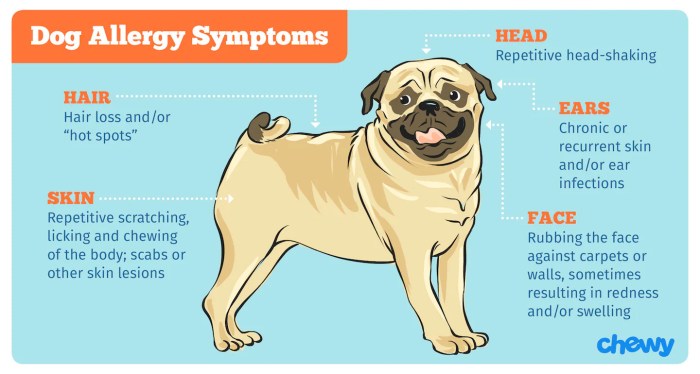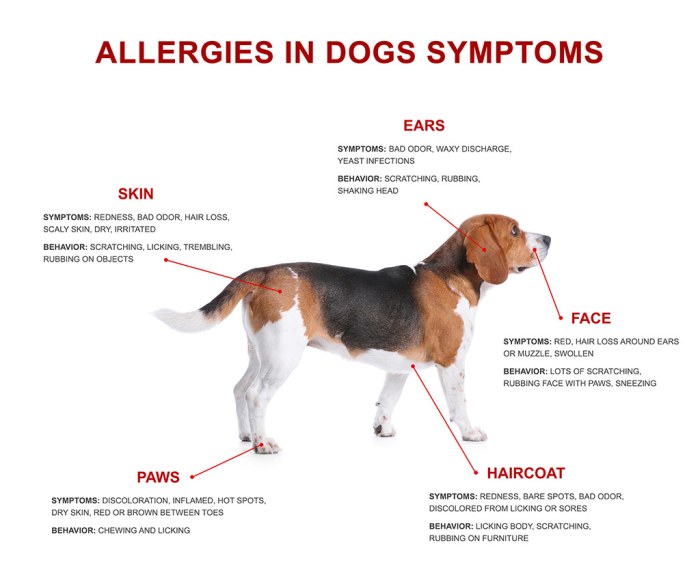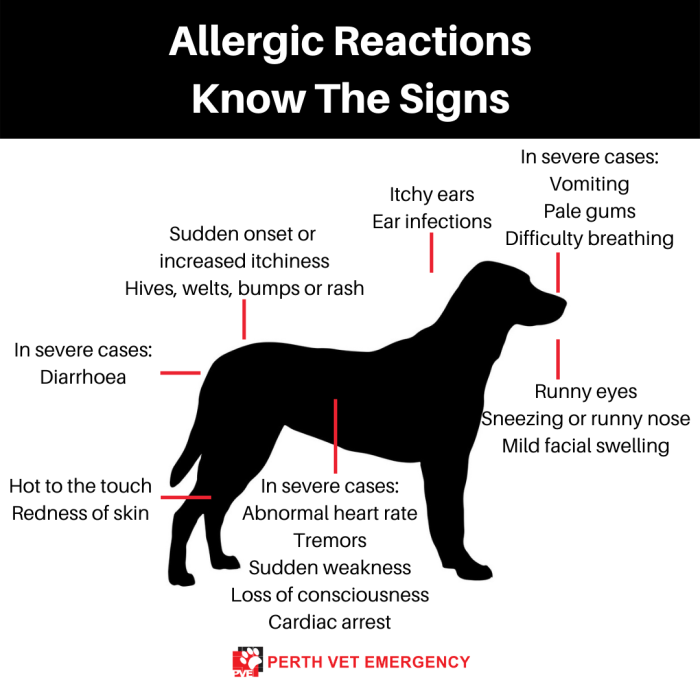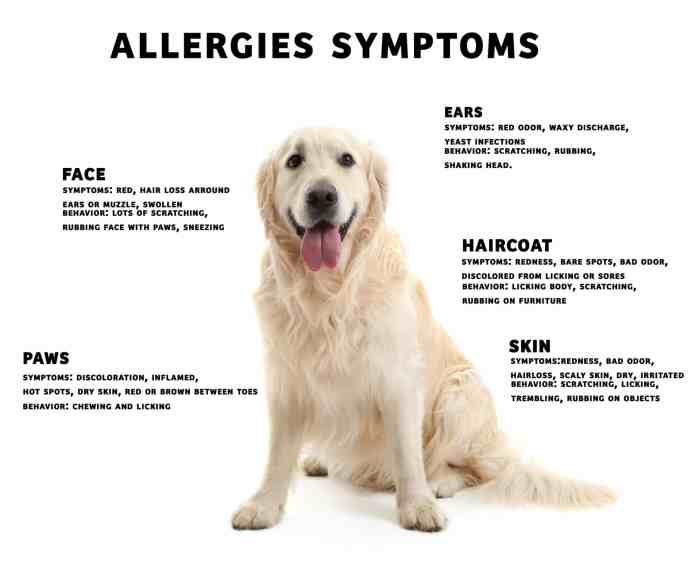Ahmet is allergic to dogs – Ahmet’s dog allergy is a common condition that can cause significant discomfort and impact daily life. This article explores the nature of his allergy, its causes, and effective management strategies.
Understanding the triggers and symptoms of Ahmet’s dog allergy is crucial for developing a personalized treatment plan. Common allergens found in dogs, such as dander and saliva, interact with the immune system, leading to allergic reactions.
Ahmet’s Allergies

Ahmet suffers from an allergy to dogs, a condition known as canine allergy. His allergy manifests as a range of symptoms, including sneezing, a runny nose, watery eyes, and skin irritation.
Triggers
The primary trigger for Ahmet’s allergy is exposure to dog dander, a protein found in dog saliva, urine, and skin. Contact with dog fur, even if the dog is not present, can also trigger his symptoms.
Impact
Ahmet’s allergy can significantly impact his daily life. He must avoid contact with dogs, which can be challenging in social situations or when visiting certain public spaces. The symptoms of his allergy can also interfere with his sleep, work, and other activities.
Causes of Dog Allergies: Ahmet Is Allergic To Dogs

Ahmet’s allergy to dogs is triggered by specific allergens found in dog saliva, urine, and dander (dead skin cells). These allergens bind to antibodies in Ahmet’s immune system, causing the release of histamine and other inflammatory mediators. This inflammatory response leads to the symptoms of an allergic reaction, such as sneezing, runny nose, itchy eyes, and skin irritation.
Prevalence of Dog Allergies
Dog allergies are common, affecting approximately 10-20% of the general population. The prevalence varies depending on factors such as geographic location, breed of dog, and individual sensitivity.
Management Strategies

Managing Ahmet’s dog allergy involves a combination of avoidance strategies, medications, and immunotherapy. Understanding the triggers and implementing effective management plans can significantly reduce his symptoms and improve his quality of life.
Avoidance Strategies
- Limit Contact with Dogs:The most effective way to manage Ahmet’s allergy is to minimize exposure to dogs. This includes avoiding homes with dogs, pet stores, and dog parks.
- Use HEPA Filters:High-efficiency particulate air (HEPA) filters can remove allergens from the air, reducing exposure in the home.
- Regular Cleaning:Thoroughly vacuuming and dusting can help remove dog dander from surfaces.
- Wash Clothes Regularly:Clothing that has come into contact with dogs should be washed in hot water to remove allergens.
- Consider a Dog-Free Home:If possible, consider having a dog-free home to eliminate the primary source of allergens.
Medications
- Antihistamines:Over-the-counter antihistamines, such as loratadine or cetirizine, can block the effects of histamine, reducing symptoms like sneezing, itching, and runny nose.
- Nasal Steroids:Prescription nasal steroids, such as fluticasone or mometasone, can reduce inflammation in the nasal passages.
- Decongestants:Nasal decongestants, such as oxymetazoline or phenylephrine, can help open up nasal passages and reduce congestion.
Immunotherapy
Immunotherapy, also known as allergy shots, can help desensitize Ahmet to dog allergens. This involves gradually introducing small doses of dog allergens over time, allowing his immune system to adapt and become less reactive.
Ahmet is allergic to dogs, but that doesn’t mean he can’t enjoy learning about other topics. For example, have you ever wondered if wax is a closed syllable? Here’s an article that explains it. Returning to Ahmet, his allergy to dogs doesn’t define him.
He’s a curious and intelligent individual with many interests.
Alternative Therapies
While conventional treatments offer effective symptom management, alternative therapies may provide additional relief and support for Ahmet’s dog allergies.
Natural remedies, acupuncture, and lifestyle modifications are gaining popularity as complementary approaches to allergy management. These therapies aim to reduce inflammation, strengthen the immune system, and alleviate allergy symptoms.
Natural Remedies, Ahmet is allergic to dogs
- Quercetin:A flavonoid found in fruits and vegetables, quercetin has anti-inflammatory and antihistamine properties that may help reduce allergy symptoms.
- Bromelain:An enzyme derived from pineapples, bromelain has anti-inflammatory and mucolytic effects that can help clear nasal congestion and reduce swelling.
- Stinging nettle:A plant extract that contains antihistamines and anti-inflammatory compounds, stinging nettle may help reduce sneezing, itching, and watery eyes.
Acupuncture
Acupuncture involves the insertion of thin needles into specific points on the body. This traditional Chinese medicine technique is believed to stimulate the body’s natural healing response, reduce inflammation, and alleviate allergy symptoms.
Lifestyle Changes
- Avoidance:The most effective way to manage dog allergies is to avoid contact with dogs. This may involve limiting visits to homes with dogs or wearing a mask when around dogs.
- HEPA filters:High-efficiency particulate air (HEPA) filters can remove allergens from the air, reducing exposure and improving symptoms.
- Diet:Some research suggests that certain foods, such as probiotics and omega-3 fatty acids, may help reduce inflammation and improve immune function.
Emotional Impact

Individuals with dog allergies face unique emotional challenges that can significantly impact their well-being. The constant avoidance of dogs and the fear of exposure can lead to feelings of isolation, frustration, and anxiety.
Isolation arises from the need to distance themselves from situations where dogs are present. This can limit their participation in social events, recreational activities, and even daily routines. The fear of accidental exposure can create a sense of constant vigilance and anxiety, making it difficult to relax and enjoy their surroundings.
Coping Strategies
- Acknowledge and validate emotions:Recognize the emotional impact of the allergy and allow yourself to feel the associated emotions.
- Seek support:Talk to family, friends, or a therapist about your experiences. Sharing your feelings can provide comfort and support.
- Focus on the positives:Despite the challenges, focus on the aspects of your life that bring joy and fulfillment. Engage in activities that make you happy and distract you from the allergy.
- Practice relaxation techniques:Incorporate stress-reducing techniques such as yoga, meditation, or deep breathing exercises into your routine.
- Consider emotional support animals:If appropriate, explore the possibility of having an emotional support animal, such as a cat or a hypoallergenic dog, to provide companionship and comfort.
Clarifying Questions
What are the common symptoms of a dog allergy?
Sneezing, runny nose, itchy eyes, skin rashes, and difficulty breathing are common symptoms.
Can dog allergies be cured?
While there is no cure, effective management strategies can significantly reduce symptoms and improve quality of life.